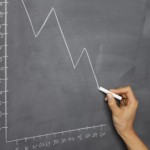Career Counselor Embraces New Technology: Network, Network, Network
Debbie Kaylor is the director of Boise State University’s Career Center. She and her staff help students and alumni decide what kind of career path is right for them. The center also helps facilitate internships. It provides assistance with interview skills, building resumes and networking. I spoke with Kaylor to find out if university career advisers have changed they way the work with students given the high rate of unemployment and underemployment. Here is an edited portion of our conversation.
Q: Has the down economy changed how you work with students?
A: We’ve always encouraged students to get a jump on the job search. It used to be three to six month process, now it’s more six to nine, bordering on 12 months, really. It’s a tough, tough market out there. But we also try to make sure they understand it’s not impossible. You have to have a positive attitude out there, and you have to keep trying. The way you try has changed too. It’s not a matter of sending out 50 resumes to 50 different companies and hoping you get a call. You’re not going to get a call typically. The big change I’ve seen over the last two to three years is really the way we teach the job search, and it’s a ton of networking whether that’s networking via LinkedIn. We use LinkedIn a lot here. Networking by volunteering, networking by informational interviewing, whatever it takes to build your network, those are the people who are going to help you find your job.
Q: Are you gearing students toward certain industries?
A: The one area we hear all the time we need more and more people is computer science. We need computer programmers. That’s not unique to Boise, but we do have a nice high-tech industry here. But, if a student doesn’t have an aptitude for math, or isn’t interested, you can’t steer them toward that. The actual degree or program, I don’t want to say it doesn’t matter, because it does, but it’s really about the skills. From the employers standpoint, whether they hire a communications major or public relations major, each could do a similar job, but it’s a matter of who has the skills. Creativity, ability to problem solve, building professional relationships, those are the type of things the University needs to do a good job with, and students need to obtain that outside the classrooms like through internship programs.
Q: Universities have always tried to give students critical thinking skills, that hasn’t changed?
A: Right, that hasn’t changed. What has changed is that the gap has widened. Employers are expecting so much more from a college graduate. When I graduated, I had my Business Management Degree with an emphasis in Human Resources, and I went into a company and got about a year to figure it out. Students don’t have that now. So when you get into a job, they don’t give you a year, they want you to come out with your critical thinking skills – that’s made the internship even more important.
Q: What are students saying about the job search? Are they frustrated?
A: I think it’s in their face every day. I think there are students that really get the six to nine month thing and they’re on the ball now looking for jobs. There are students who will graduate in May and walk in our door the week after graduation. That’s tough, if they haven’t done any of the things we’ve been talking about. The frustrated people I see are alumni, because those are the people that may have been laid off, they may have established a lifestyle they’re used to and they need to make $50,000 a year, or they have a family to take care of. The good thing about being a new college grad, you’re used to living on practically nothing and can take those entry level jobs. The entry level jobs are around, but it’s those higher level jobs that are harder to find. When executive level people get laid off, there isn’t a lot of opportunity in Boise. Often what our career counselors have to do is really just build back up confidence with people, remind them they aren’t in this alone.


